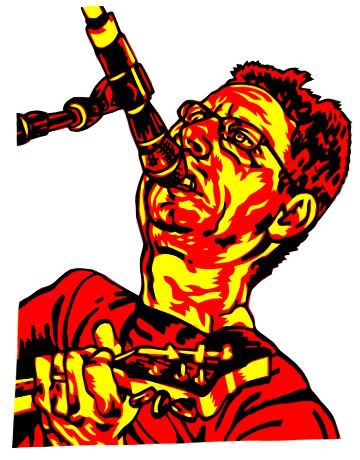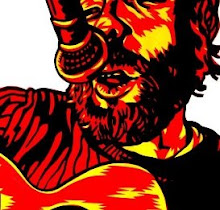
I've been meaning to write something about Wire for awhile now, and the points have converged. I may be either revealing or dating myself here, but when I explain that I was a mere two years of age when Wire recorded their groundbreaking album Pink Flag at London's Advision Studios, I expect to be forgiven for not being a life-long fan.
I am a fervent admirer now, I should add.
I thought that the first time I heard Wire was on the beautiful little Luna 7" Outdoor Miner, 1996, on Radiation. The track (oh, sorry, that would be "Outdoor Miner," track 10 from 1978's Chairs Missing) was re-released on the awesome download-only album Lunafied, a magnificent collection of covers by Wareham et al over the years, and it is a gorgeous version of the song: rolling along groovily in that distinct Luna way, with Dean Wareham's plaintive wail doing the cover better (in my mind) than the sublime original (it's always something special when an musician paying tribute to another manages to better the song). Anyway, I loved the Luna "Outdoor Miner" so much I started hunting down the original, which proved harder than I had hoped, but since the original LPs had been out of print for more than a decade, I was very lucky indeed to find them recently re-issued on CD by Revolver USA.
After tracking down several albums, I realized the remarkable permeation Wire's work had worked into my subconcious mind over the years. Their general influence over most every (rock and punk) band I've ever liked was crystal-clear, and surprisingly (there was a time when I was much more lax about reading liner notes, credits, or even *gasp* titles), I discovered that the REM track "Strange," on 1987's Document was, in fact, a straight cover from Pink Flag, and that Elastica had ripped off wholesale the guitar riff from the same record's "Three Day Rhumba."
As I made my way through repetitive listenings to the records I felt a sense of welcome, that this music had been out there waiting, in a sense, for me to make my way to it. The lyrics were paranoid and disjointed, and the jagged, often robotic, sonic barrages (particularly on the then-startling Pink Flag) were fraught with the potential to turn-off or overload, but they felt so right, so fitting. I was sinking backwards through the strata of 1990s post-punk, down through the feedback to one of the original sources.
So I was thrilled when my friend Rodney told me the other day that Wire had a new record out. A new studio record, not some unearthed collective of unfresh vintage. And so i got my hands on the nine songs that make up the thoroughly excellent Object 47.
The first track, "One of Us," makes clear from the first beat, a lone, stark snare strike, that Wire has lost none of their potency or freshness, and just in case it was too subtle, the first note is followed by an intense, grinding bass that leads into a quietly growling rhythm guitar melody and then the slightly louder growling of Colin Newman's vocals. The beat is pulsing and rapid, with all the best nostalgic feel of Joy Division or, indeed, Wire itself back in the seventies and eighties. The repetitive crescendo builds up, with high whingeing tones aching like sirens, "Declining... dividing... / One of us will live to rue the day we met each other."
As the album progresses, a history of punk/post-punk as filtered by the British exponents, slightly more conceptual, definitely artier (in bad- and not-bad-interpretations) is laid out for the educated listener--certainly anyone coming across Object 47 without prior knowledge of Wire will come away with the impression that the band is actually retro, unaware that they actually pioneered the sound. It really does sound fantastic, though less similar to Pink Flag than to the band's subsequent efforts, which makes some sense when one notes that the first three Wire records, Pink Flag, Chairs Missing, and 1979's 154, which were all released within one frigging year of another on EMI's Prog-rock division Harvest Records, boldly diverged from a distinct formula, each breaking new ground, as it were. Object 47, on the other hand, benefits greatly from 20/20 hindsight, and one can trace strands of the nine tracks back to references, sensibilities and sound from the collected back catalogue. One listen down. I can't imagine this will be leaving my CD player any time soon...

No comments:
Post a Comment